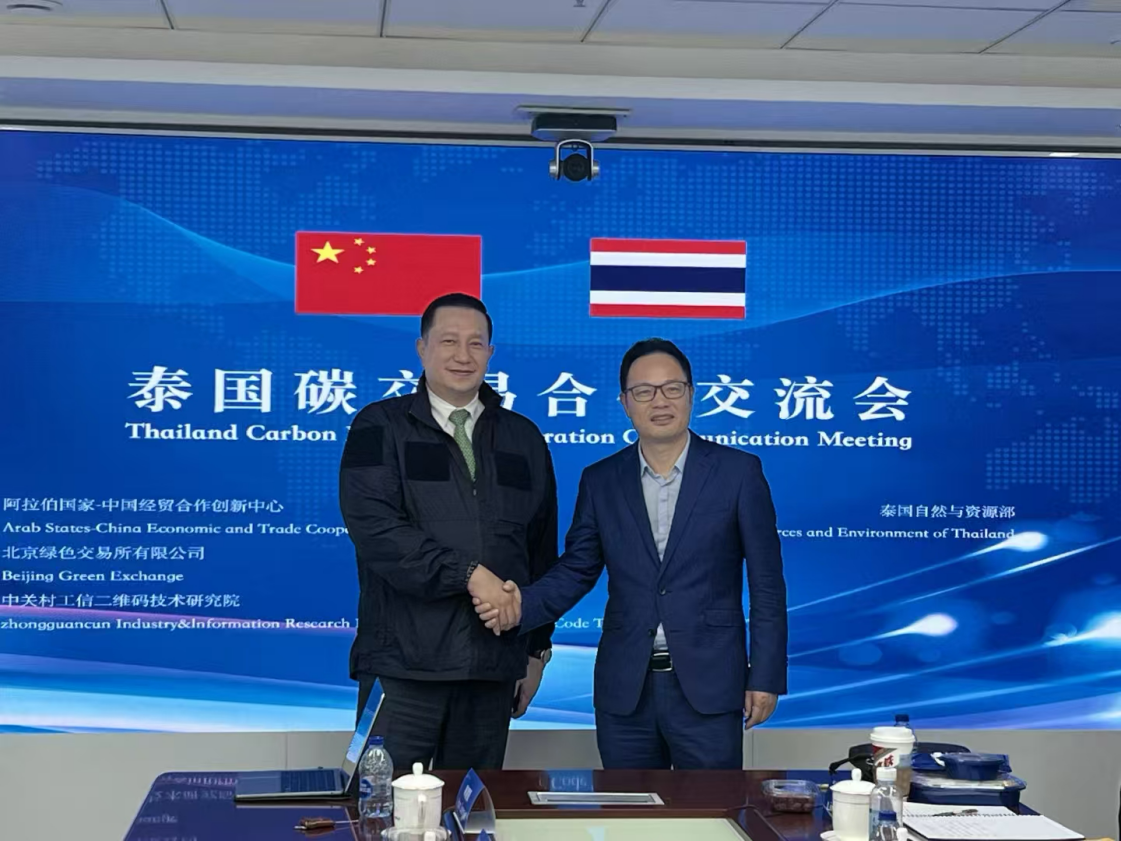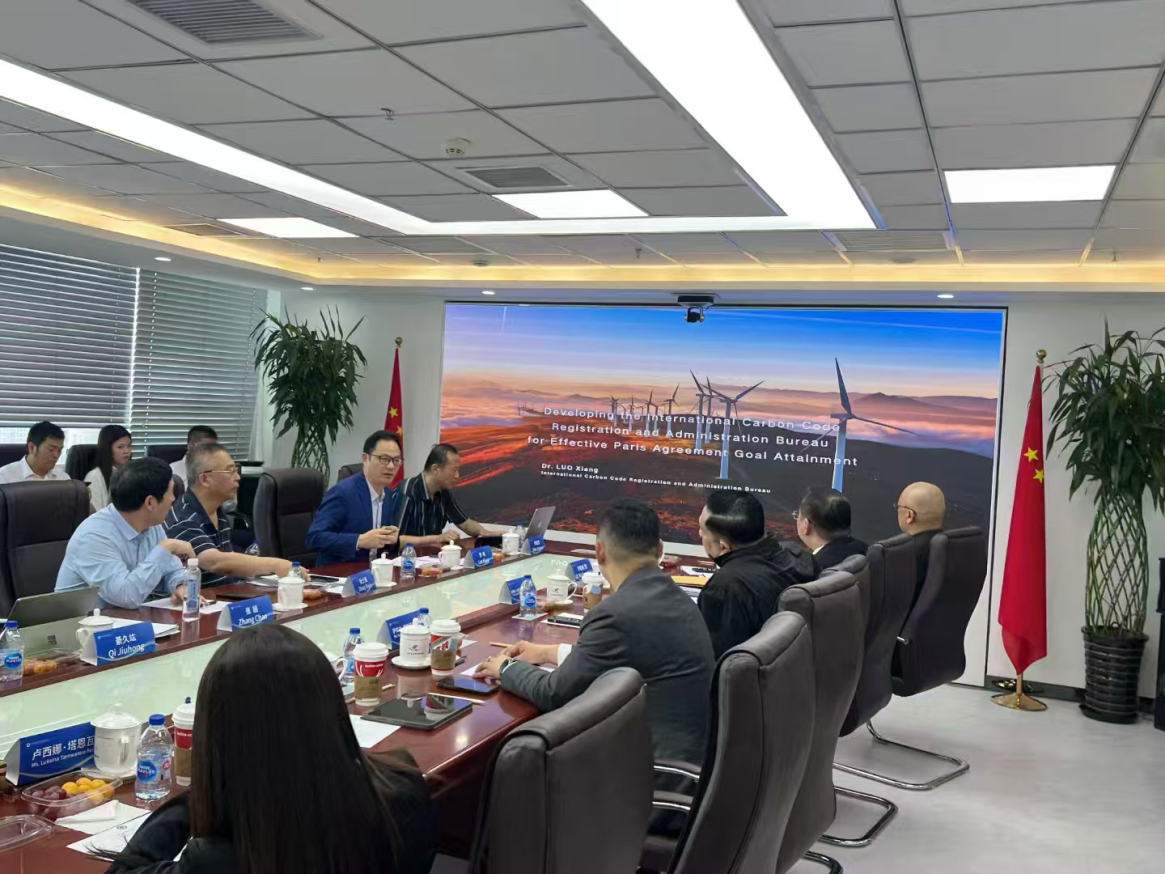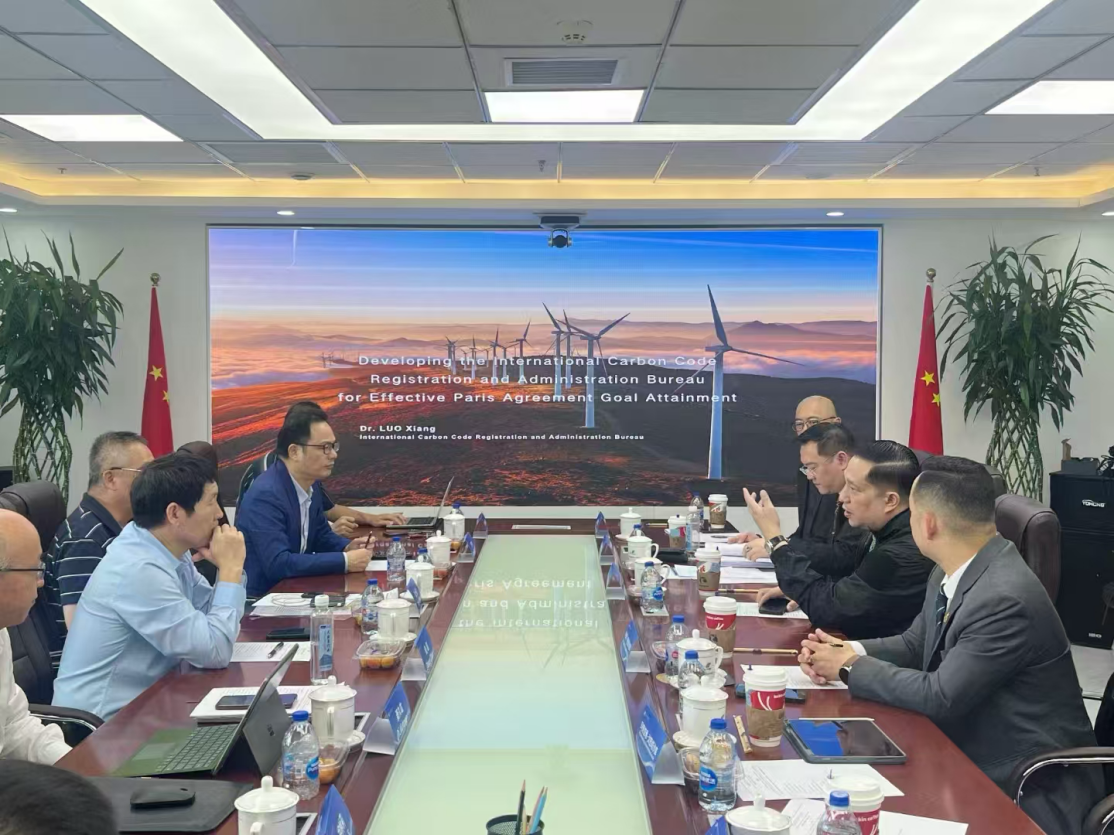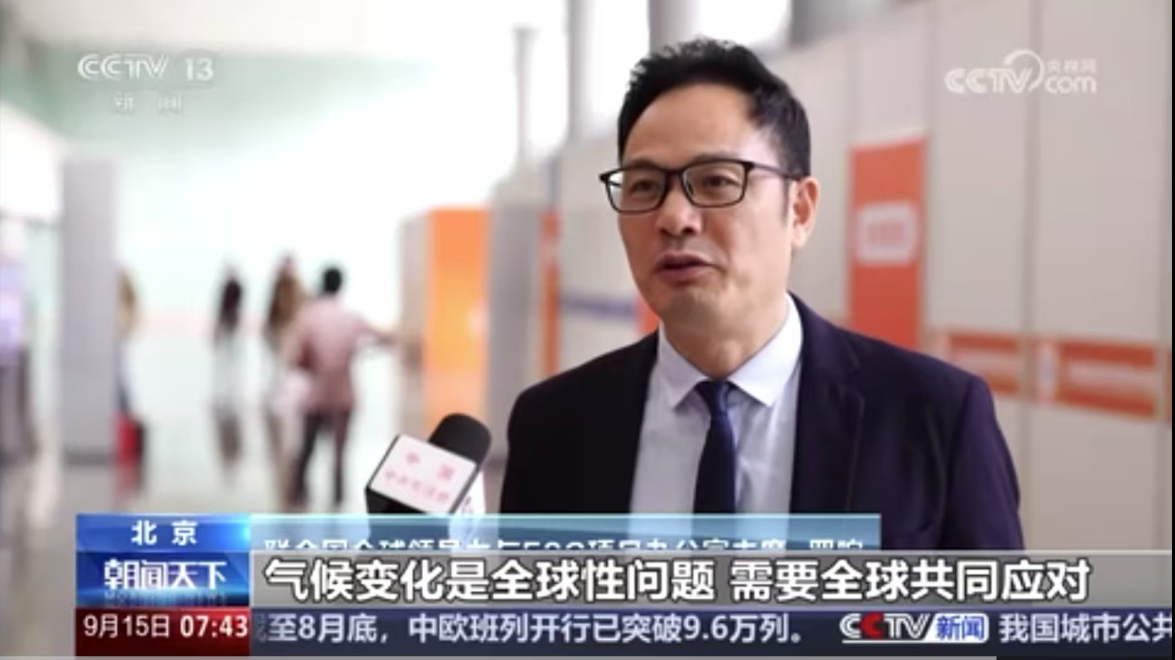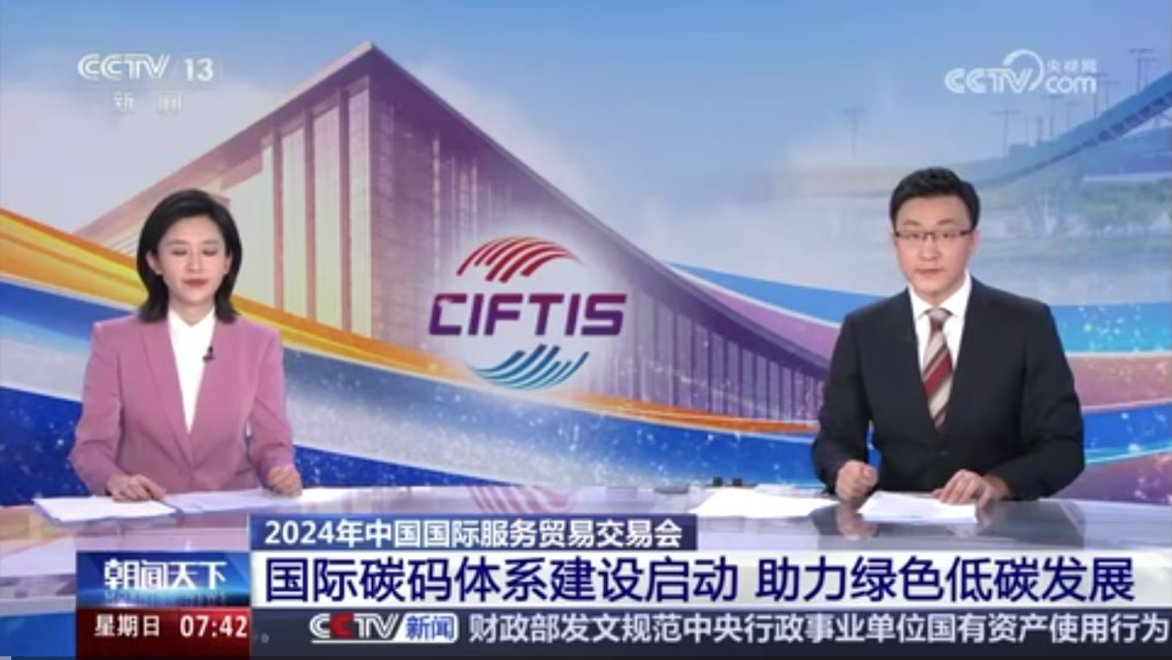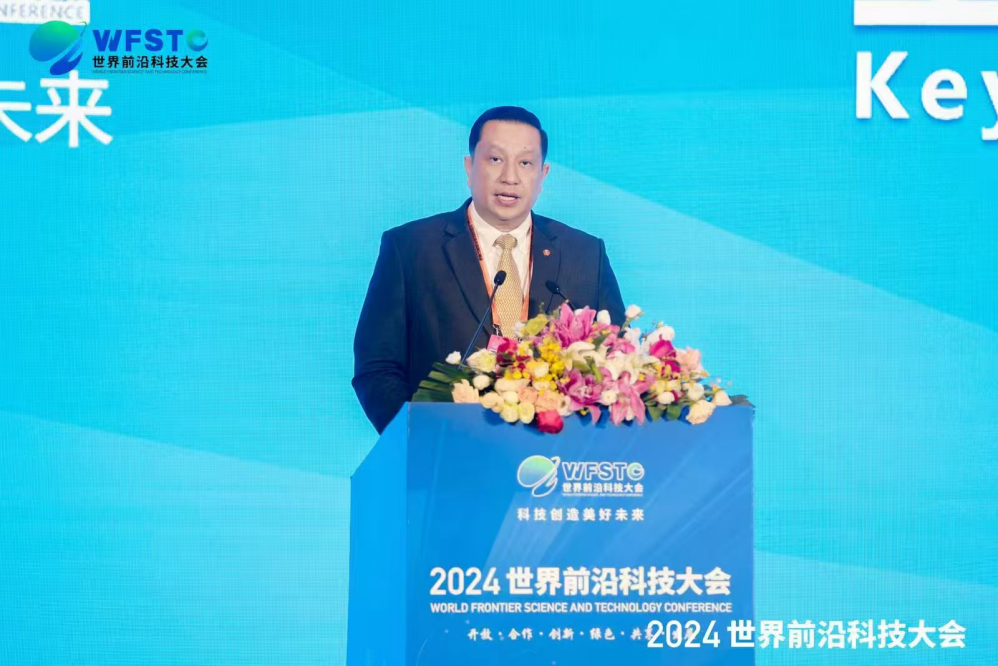
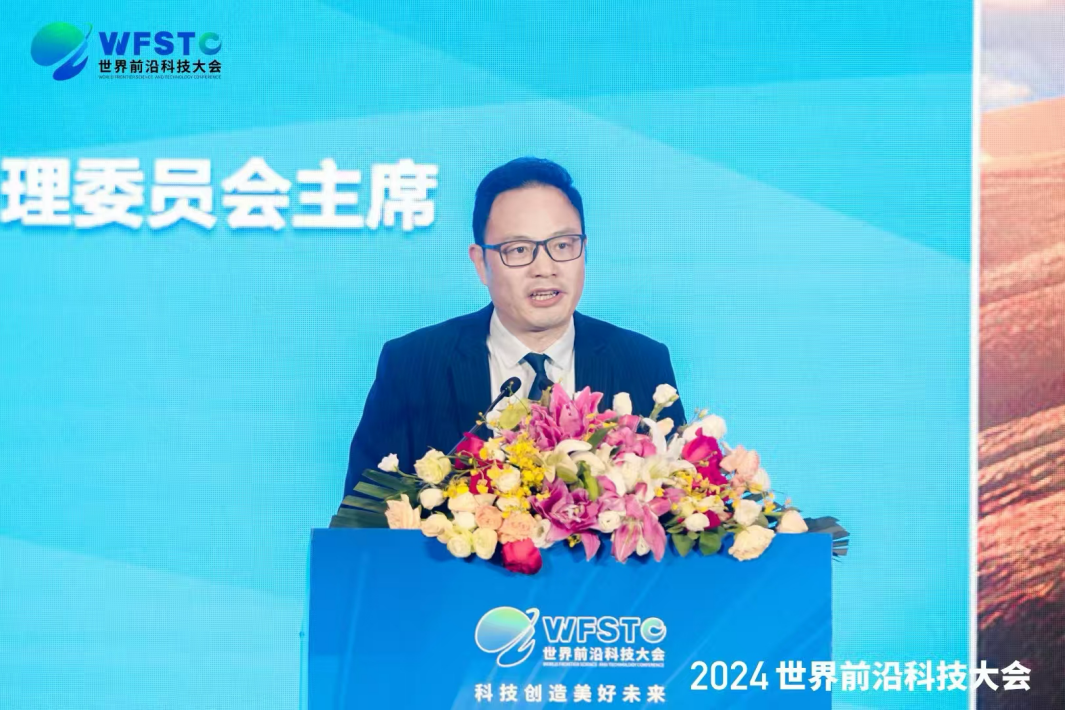
During the 2024 China International Fair for Trade in Services, the World Frontier Technology Conference and the 23rd "Belt and Road" Technology Transfer and International Innovation Cooperation Forum were held in Beijing. Dr. Luo Xiang, Chairman of the Management Committee of the United Nations Global Leadership and ESG Center and Chairman of the Preparatory Committee of the International Carbon Code Registration Administration, introduced the preparations for the construction of the international carbon code system at the meeting.
Luo Xiang pointed out that responding to the climate change crisis is one of the most urgent action strategies in the world today. Industrial technology innovation, green investment transformation and international mutual assistance and cooperation are the three key measures to achieve this goal. As an innovative infrastructure integrating greening and digitalization, the carbon code system can connect the entire chain of "quantification, generation, circulation, aggregation, trading, consumption and application" of carbon emission data in the industrial chain, form the international carbon code registration resource allocation capability of the green digital economy, promote the coordinated development of the green economy and the digital economy, and is a new engine for the construction of green development demonstration zones and even the global development of the green digital economy. The construction of the international carbon code system will provide solid digital infrastructure support for global climate governance, help countries in the joint construction of the "Belt and Road" initiative to improve their ability to respond to climate change, and help achieve the goals of the Paris Agreement efficiently.
A signing ceremony for the carbon code landing in Thailand was also held at the meeting. Ambassadors from the United Arab Emirates, Egypt, Jordan, Morocco and other countries to China, as well as nearly 1,000 government, industry, investment and technology professionals from 16 countries including China, the United Arab Emirates, Egypt, Morocco, Saudi Arabia, Jordan, Singapore and Thailand witnessed the signing. The landing of the international carbon code in Thailand means that the preparation work for the international carbon code has made substantial progress.
According to Zhang Chao, president of Zhongguancun Gongxin QR Code Technology Research Institute and secretary-general of the International Identification Code Industry Alliance, the international carbon code system is a digital identity code system that records relevant information at different stages of the entire life cycle of objects related to carbon footprint management. It is based on the international standard MA identification code system to give carbon footprint carbon management related objects a global unique digital identity code and provide corresponding registration management, analysis services and data services. The record of product carbon emissions can go deep into all links from production to consumption, and become a strong support for the green and low-carbon transformation of service production methods and lifestyles. It is a new global digital green key infrastructure that will help build a low-carbon world of all things connected.
The international carbon code system, jointly promoted by the Preparatory Committee of the International Carbon Code Registration Administration, the International Identification Code Industry Alliance, the Social Impact Investment Foundation and other international organizations, is committed to establishing a global carbon emission management standard mutual recognition and emission reduction digital infrastructure interconnection international network, promoting the transparency and precision and efficiency of global climate action.


